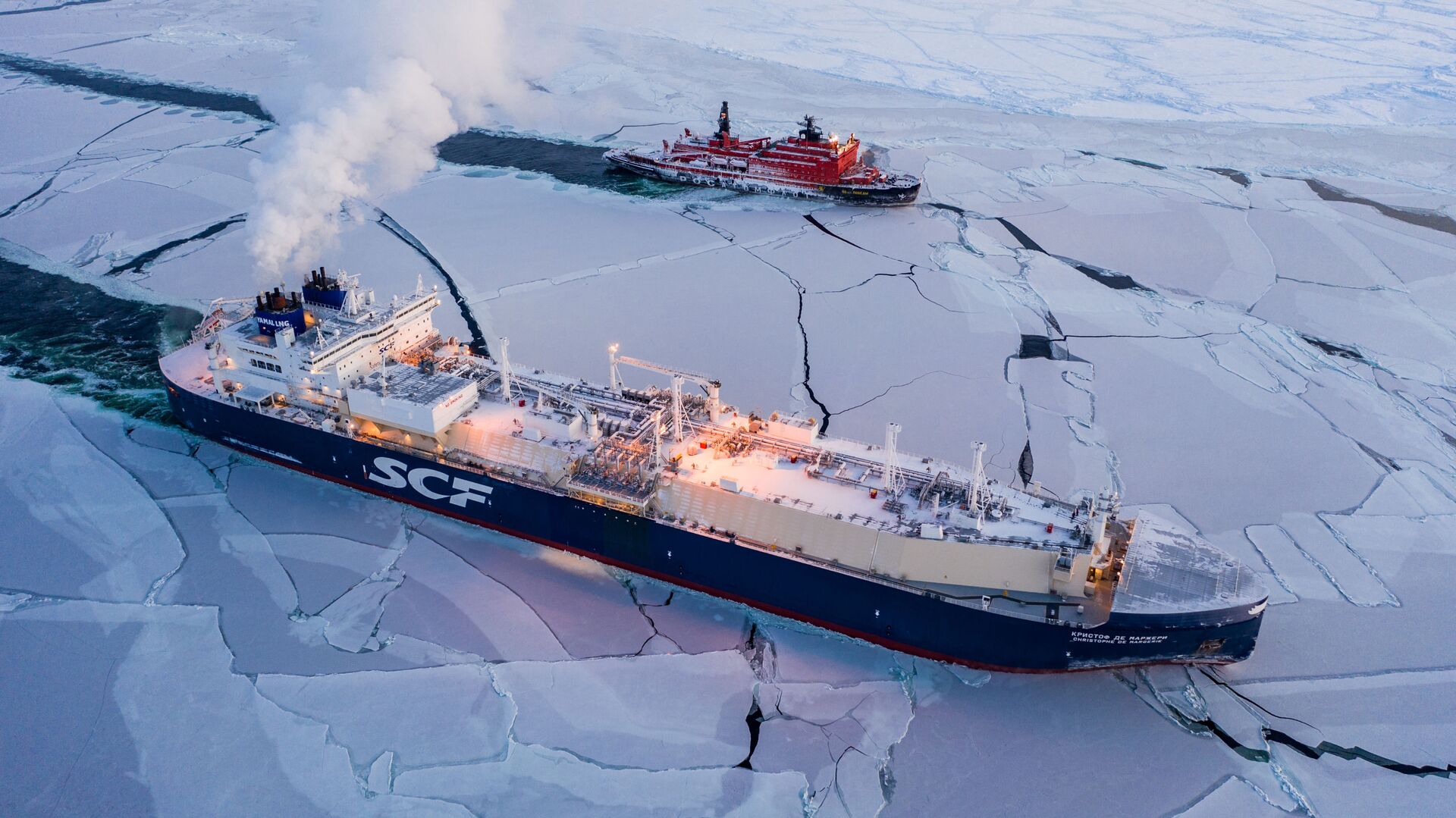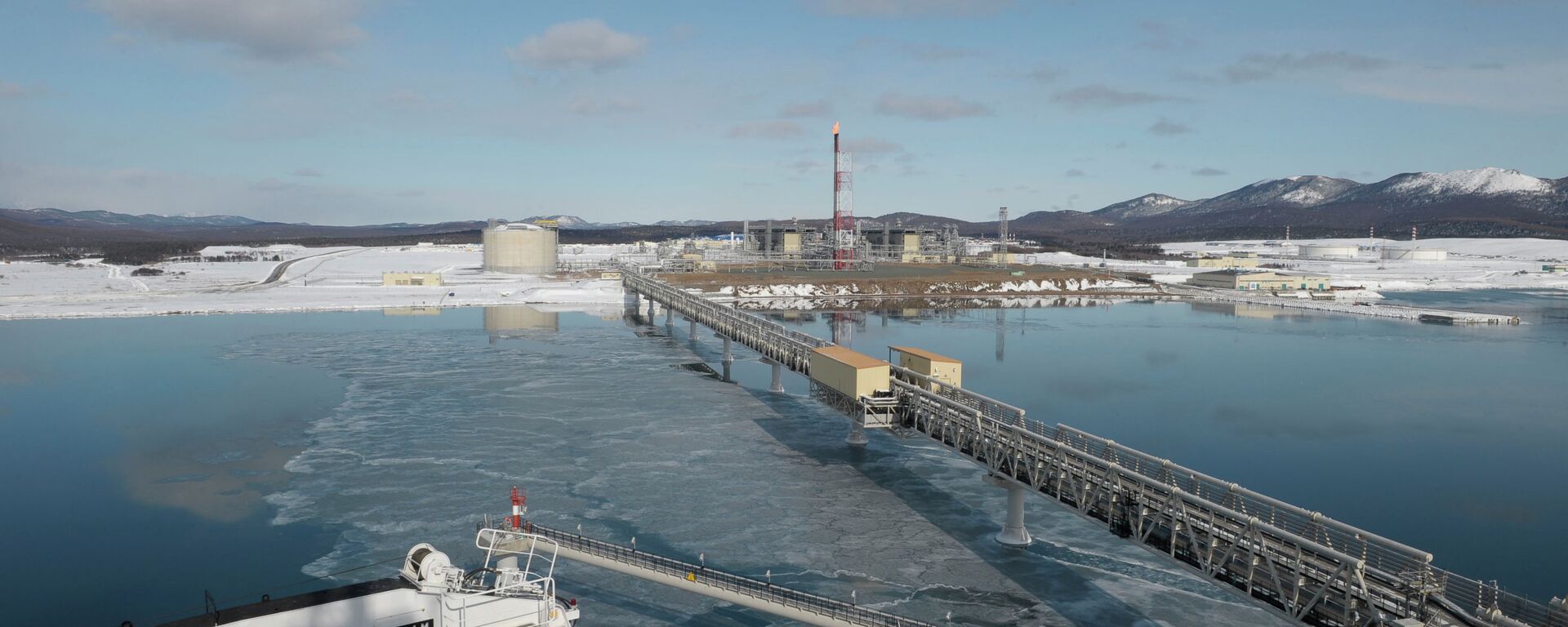https://sputniknews.in/20231003/india-supports-russias-plan-to-develop-northern-sea-route-as-suez-canal-unreliable-experts-4550474.html
India Supports Russia's Plan to Develop Northern Sea Route as Suez Canal Unreliable: Experts
India Supports Russia's Plan to Develop Northern Sea Route as Suez Canal Unreliable: Experts
Sputnik India
Indian Shipping Minister Sarbananda Sonowal has said that New Delhi remains "keen" to develop the Northern Sea Route with Russia to bolster connectivity and trade.
2023-10-03T18:34+0530
2023-10-03T18:34+0530
2023-10-03T18:34+0530
indo-russian relations
india
russia
suez canal
northern sea route (nsr)
european union (eu)
chennai
indian navy
chennai–vladivostok maritime corridor
vladivostok
https://cdn1.img.sputniknews.in/img/07e7/03/1b/1312289_0:197:3075:1926_1920x0_80_0_0_401c8a642929cf8d063268aded73a843.jpg
As Russia and India boost mutual cooperation in many directions, the search for optimal transport routes is becoming a pressing topic.Besides the Chennai-Vladivostok corridor, eyes are on the Northern Sea Route(NSR) - a route between Europe and Asia that may become a promising alternative to the Suez Canal, as it could reduce the distance between Europe and Asia from one month to less than two weeks.Sputnik India has spoken to experts on why Russia and India need to look towards the comprehensive development of the Northern Sea Route, as well as the Chennai-Vladivostok Shipping Corridor, as an alternative to the Suez Canal, which has become burdened with all sorts of issues in recent years. Commodore (retired) Seshadri Vasan, director-general of the Chennai Centre for China Studies (C3S), told Sputnik India that developing the Northern Sea Route as an alternative mode of connectivity between Asia and Europe makes "complete geopolitical sense".In fact, the leaderships of both India and Russia have been involved in devising practical ways to bring commodities such as liquefied natural gas (LNG), timber, coal, and iron ore from the resource-rich Russian Far-east to India, one of the fastest-growing major global economies.He stressed that increasing competition in terms of having more connectivity routes between Asia and Europe would also end the near-monopoly of the Suez Canal."Around 40 percent of Indian trade already passes through the South China Sea. So, obviously, the part of the proposed Chennai-Vladivostok corridor is already in use. In terms of connectivity, the more options you have, the better it is," the Indian think-tanker underlined.'Navigational Hazard' Linked to Suez Canal on the Rise: ExpertVasan pointed out that "navigational hazards" associated with the Suez Canal route, currently the preferred sea lane from Asia to Europe, have been on the rise in recent years.He also underscored the fact that the vulnerability of Suez Canal to any disruptive incident would resonate globally, as it is one of the world's “choke points”.Vasan pointed to a 2021 episode when the Suez Canal was closed to container traffic due to the grounding of the Ever Given tanker, disrupting maritime traffic for six days.Vasan also backed the training of Indian merchant navy sailors in the Arctic waters, noting that nearly 14 percent of the global merchant workforce comes from India.Speaking about the challenges in developing the NSR and the Chennai-Vladivostok corridor, Vasan was of the view that the primary requirement is port infrastructure."Shipping lanes are open to maritime traffic so I don't see any issue over there. The only necessity is increased investments in developing the ports in Russia and in Asia so that they are able to handle the maritime traffic in terms of loading and unloading operations,” the former Indian sailor reckoned.The Egyptian government has also resisted pressure from Western countries to bar Russian ships from using the critical waterway in the wake of Russia's special military operation in Ukraine.Northern Sea Route Has Already Proven to be ‘Cost Viable’Chris Devonshire-Ellis, chairman of business consultancy Dezan Shira and Associates, told Sputnik India that the “real benefit” of the Northern Sea Route lies in getting LNG from the Arctic region to Asia, as building railways from the Arctic to the south would be “extremely expensive and geopolitically difficult”.He stressed the point that the route would be a “cost-viable” method of getting Russian LNG to Asian markets.Devonshire-Ellis suggested that the Northern Sea Route could also prove to be beneficial for European Union (EU) economies in the long-run, if the current political situation between Moscow and the West stabilizes.“Although at present the political situation prevents it, Arctic LNG maritime routes heading west to Europe would also make a lot of sense for European economies,” the consultant stated.Devonshire-Ellis pointed out that Russian LNG supplies could “bridge the transition” as Asian economies turn towards renewable energy sources to achieve their net-zero goals.Several Challenges Still in the Way of Developing Northern Sea RouteDevonshire-Ellis reckoned that there are several challenges still to be taken care as the Northern Sea Route is developed.He also cautioned that the Arctic region continues to be an “important ecological area”.
https://sputniknews.in/20230206/russias-gas-producer-novatek-in-talks-with-indian-companies-on-long-term-lng-supplies-773820.html
india
russia
suez canal
chennai
vladivostok
south china sea
china
asean
southeast asia
Sputnik India
feedback.hindi@sputniknews.com
+74956456601
MIA „Rossiya Segodnya“
2023
Sputnik India
feedback.hindi@sputniknews.com
+74956456601
MIA „Rossiya Segodnya“
News
en_IN
Sputnik India
feedback.hindi@sputniknews.com
+74956456601
MIA „Rossiya Segodnya“
Sputnik India
feedback.hindi@sputniknews.com
+74956456601
MIA „Rossiya Segodnya“
maritime threats, maritime news, northern sea route, chennai vladivostok shipping corridor, india russia trade, russian crude exports to india, russian exports, g7 sanctions against russia, western sanctions, russian fertilizer exports, chennai vladivostok lane, india news, russia ukraine conflict, suez canal piracy, piracy in red sea, russia india cooperation
maritime threats, maritime news, northern sea route, chennai vladivostok shipping corridor, india russia trade, russian crude exports to india, russian exports, g7 sanctions against russia, western sanctions, russian fertilizer exports, chennai vladivostok lane, india news, russia ukraine conflict, suez canal piracy, piracy in red sea, russia india cooperation
India Supports Russia's Plan to Develop Northern Sea Route as Suez Canal Unreliable: Experts
Indian Shipping Minister Sarbananda Sonowal has said that New Delhi remains "keen" to develop the Northern Sea Route with Russia to bolster connectivity and trade.
As Russia and India boost mutual cooperation in many directions, the search for optimal transport routes is becoming a pressing topic.
Besides the Chennai-Vladivostok corridor, eyes are on the Northern Sea Route(NSR) - a route between Europe and Asia that may become a promising alternative to the Suez Canal, as it could reduce the distance between Europe and Asia from one month to less than two weeks.
Sputnik India has spoken to experts on why Russia and India need to look towards the comprehensive development of the Northern Sea Route, as well as the Chennai-Vladivostok Shipping Corridor, as an alternative to the Suez Canal, which has become burdened with all sorts of issues in recent years.
Commodore (retired) Seshadri Vasan, director-general of the Chennai Centre for China Studies (C3S), told Sputnik India that developing the Northern Sea Route as an alternative mode of connectivity between Asia and Europe makes "complete geopolitical sense".
"The Arctic Sea has been opening up and it is only natural for the maritime traffic to increase. I see the development of the NSR and the Chennai-Vladivostok corridor as a very positive step in that sense. There is also growing demand for Russian commodities in the Indian market and Indian finished products could find a seamless transit to the Russia markets and beyond," stated Vasan, an Indian Navy veteran.
In fact, the leaderships of both
India and Russia have been involved in devising practical ways to bring commodities such as liquefied natural gas (LNG), timber, coal, and iron ore from the resource-rich Russian Far-east to India, one of the fastest-growing major global economies.
He stressed that increasing competition in terms of having more connectivity routes between Asia and Europe would also end the near-monopoly of the Suez Canal.
"Around 40 percent of Indian trade already passes through the South China Sea. So, obviously, the part of the proposed Chennai-Vladivostok corridor is already in use. In terms of connectivity, the more options you have, the better it is," the Indian think-tanker underlined.
'Navigational Hazard' Linked to Suez Canal on the Rise: Expert
Vasan pointed out that "navigational hazards" associated with the Suez Canal route, currently the preferred sea lane from Asia to Europe, have been on the rise in recent years.
"Navigational hazards refer to the threat of a conflict which could block the route, threats of piracy or any other traditional or non-traditional maritime threats", he explained.
He also underscored the fact that the vulnerability of Suez Canal to any disruptive incident would resonate globally, as it is one of the world's “choke points”.
Vasan pointed to a 2021 episode when the Suez Canal was closed to container traffic due to the grounding of the Ever Given tanker, disrupting maritime traffic for six days.
"For such a scenario, we need alternative and functioning alternative modes of connectivity", he stated.
Vasan also backed the training of Indian merchant navy sailors in the Arctic waters, noting that nearly 14 percent of the global merchant workforce comes from India.
At the 8th Eastern Economic Forum (EEF) held in Vladivostok, Indian Ports, Shipping, and Waterways Minister Sarbananda Sonowal and Russian Minister for the Development of the Far East and Arctic Regions Alexey Chekenkov signed a pact under which Indian seafarers would be trained in navigating the Arctic waters at the Russian Maritime Training Academy.
Speaking about the challenges in developing the NSR and
the Chennai-Vladivostok corridor, Vasan was of the view that the primary requirement is port infrastructure.
"Shipping lanes are open to maritime traffic so I don't see any issue over there. The only necessity is increased investments in developing the
ports in Russia and in Asia so that they are able to handle the maritime traffic in terms of loading and unloading operations,” the former Indian sailor reckoned.
"Over a period of time, the economic feasibility of the NSR, Chennai-Vladivostok Shipping Corridor will be determined by the volume of traffic and the development of the port infrastructure," added Vasan.
The Egyptian government has also
resisted pressure from Western countries to bar Russian ships from using the critical waterway in the wake of Russia's special military operation in Ukraine.
Northern Sea Route Has Already Proven to be ‘Cost Viable’
Chris Devonshire-Ellis, chairman of business consultancy Dezan Shira and Associates, told
Sputnik India that the “real benefit” of the Northern Sea Route lies in getting LNG from the Arctic region to Asia, as
building railways from the Arctic to the south would be “extremely expensive and geopolitically difficult”.
“Regular shipping from the Arctic east and then south down China's eastern seaboard then into southeast Asia is the obvious route”, remarked Devonshire-Ellis.
He stressed the point that the route would be a “cost-viable” method of getting Russian LNG to Asian markets.
Devonshire-Ellis suggested that the Northern Sea Route could also prove to be beneficial for European Union (EU) economies in the long-run, if the
current political situation between Moscow and the West stabilizes.
“Although at present the political situation prevents it, Arctic LNG maritime routes heading west to Europe would also make a lot of sense for European economies,” the consultant stated.
He remarked that the Northern Sea route could indeed become a “vital energy link” between energy-rich Russia and Asia, which is home to the world’s fastest-growing economies, including India, China and southeast Asian nations.
Devonshire-Ellis pointed out that Russian LNG supplies could “bridge the transition” as Asian economies turn towards renewable energy sources to achieve their net-zero goals.
Several Challenges Still in the Way of Developing Northern Sea Route
Devonshire-Ellis reckoned that there are several challenges still to be taken care as the Northern Sea Route is developed.
“The Arctic Ocean is still going to remain a difficult passage - ice returns in the winter and will continue to be hazardous to shipping. The Arctic shelf off the Russian coast is also relatively shallow and prone to storms”, Devonshire-Ellis listed.
He also cautioned that the Arctic region continues to be an “important ecological area”.
“Dealing with this, on a year-round basis, means developing new classes of ships that can transport gas (and oil) without the risk of any mishaps, while also being able to handle ice conditions and heavy storms. Russia has been discussing developing such vessels with India”, the business expert said.


